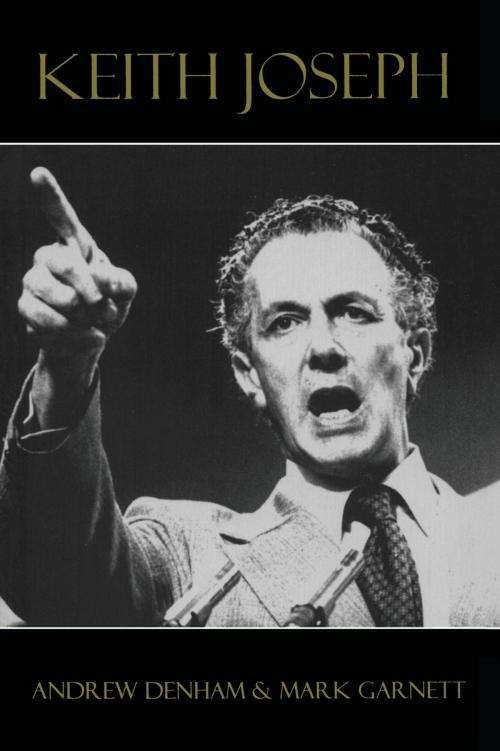| Author: | Andrew Denham, Mark Garnett | ISBN: | 9781317490241 |
| Publisher: | Taylor and Francis | Publication: | December 18, 2014 |
| Imprint: | Routledge | Language: | English |
| Author: | Andrew Denham, Mark Garnett |
| ISBN: | 9781317490241 |
| Publisher: | Taylor and Francis |
| Publication: | December 18, 2014 |
| Imprint: | Routledge |
| Language: | English |
Hailed by Margaret Thatcher as the founder of modern conservatism, Keith Joseph is commonly ranked among the most influential politicians of the late-20th century. A complex and enigmatic figure Joseph was almost unique among Mrs Thatcher's senior ministers in refusing to write his own memoirs. Challenging both the "mad monk" view held by his critics and his status of mythical hero to his admirers, the authors present a picture of Joseph as a thinker and decision-maker. the authors tell of Joseph's formative years before he entered Parliamnet in 1956: the powerful Jewish dynasty into which Josph was born; his time at Harrow; at Oxford; his war years in the Royal Artillery; and his Fellowship at All Souls. This volume charts the political career of Keith Joseph. The authors challenge Joseph's self-declared conversion to Conservatism in 1974 and the importance of his "education" of Margaret Thatcher. His own ambition, intellectual integrity and consistency are all examined and a different picture emerges of his role as the intellectual driving force behind Conservative Government policy in the 1980s.
Hailed by Margaret Thatcher as the founder of modern conservatism, Keith Joseph is commonly ranked among the most influential politicians of the late-20th century. A complex and enigmatic figure Joseph was almost unique among Mrs Thatcher's senior ministers in refusing to write his own memoirs. Challenging both the "mad monk" view held by his critics and his status of mythical hero to his admirers, the authors present a picture of Joseph as a thinker and decision-maker. the authors tell of Joseph's formative years before he entered Parliamnet in 1956: the powerful Jewish dynasty into which Josph was born; his time at Harrow; at Oxford; his war years in the Royal Artillery; and his Fellowship at All Souls. This volume charts the political career of Keith Joseph. The authors challenge Joseph's self-declared conversion to Conservatism in 1974 and the importance of his "education" of Margaret Thatcher. His own ambition, intellectual integrity and consistency are all examined and a different picture emerges of his role as the intellectual driving force behind Conservative Government policy in the 1980s.















